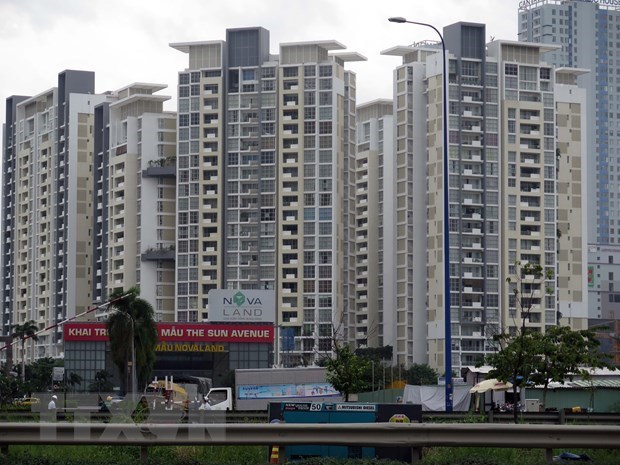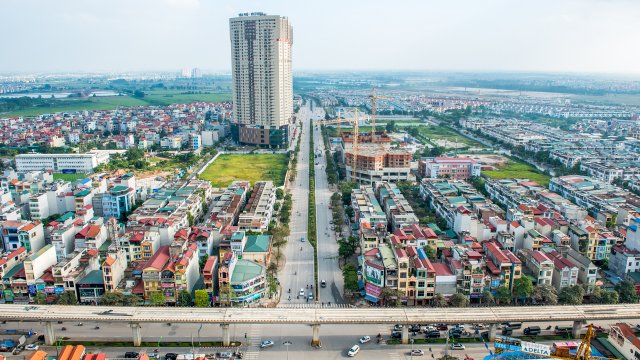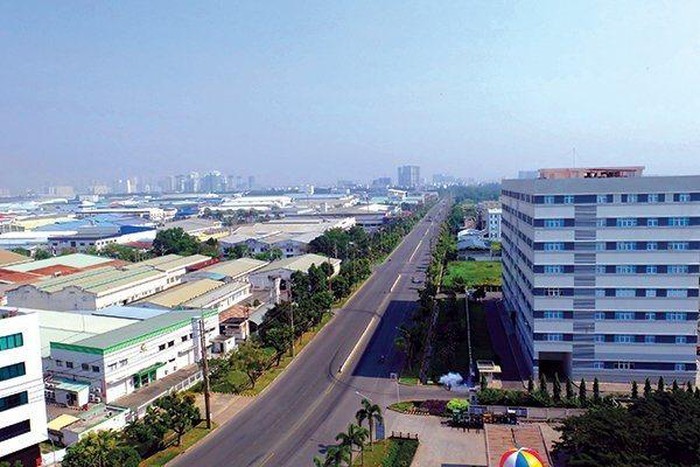 |
|
Real estate firms must seek alternative ways to raise their capital as the State Bank of Vietnam (SBV) has ordered tight control over real estate loans.
|
The central bank increased the risk weighting of real estate loans from 200 percent to 250 percent in 2019, which is a significant disincentive for banks to make loans to the property sector since their minimum capital requirement is a ratio of their risk-weighted assets under the Basel norms.
Meanwhile, the SBV’s regulation on reducing the maximum quantum of short-term deposits that can be used for medium- and long-term loans from 45 percent to 40 percent will reduce banks’ liquidity.
To that end, realty enterprises need to count on other source, especially when the interest rate risks are high.
Phat Dat Real Estate Development Corporation (PDR) has recently announced the successful issue of 150 billion VND (6.46 million USD) worth of 1-year bonds at a per-annum yield rate of 14 percent. This is the fourth bond issuance so far this year in the firms. Earlier, it put up for sales 850 billion VND worth of bonds at interest rates of 14.45 percent, 12 percent and 10.5 percent.
Dat Xanh Group also successfully made a sale of 234 billion VND worth of five-year bonds, offering an annual yield rate of 7 percent.
According to the Ho Chi Minh City Real Estate Association (HoREA), businesses operating in the fields of property, construction and infrastructure development issued bonds worth more than 16.2 trillion VND during January-May, or 27 percent of the total value of bonds which have been already put up for sales.
Last year, there was a huge crowd of businesses, including Vingroup, Vinhomes, Nam Long, Novaland, TTCLand and Van Phu Land, issued bonds to raise more capital.
The value of bonds by Vingroup and Masan Consumer Holding alone reached 33.2 trillion VND.
Actually, bond issuance is an important channel for realty firms to add more capital and restructure their finance. The yield rates offered by the companies are usually high, up to 12-14.5 percent per year, doubling the deposit interest rates at commercial banks.
However, the firms would have to pay higher costs, which pose grave risks for their financial situation and investors as well.-VNA

EVFTA gives Vietnam’s industrial real estate market a lift
The EU-Viet Nam Free Trade Agreement (EVFTA) will have a positive impact on Viet Nam's real estate market, especially the industrial real estate, experts said.

Vietnam real estate market on steady foundations
Here are the opinions of local and foreign industry players on Vietnam's property market.

Industrial real estate developers see windfall as demand soars
The rent in industrial zones (IZ) has increased rapidly. Some provinces in the eastern part of the south have no more land to lease, while investments in the processing and manufacturing industry continue to rise.
 As the State Bank of Vietnam (SBV) has ordered tight control over real estate loans by credit institutions, property firms and developers have to seek alternative ways to raise their capital.
As the State Bank of Vietnam (SBV) has ordered tight control over real estate loans by credit institutions, property firms and developers have to seek alternative ways to raise their capital.